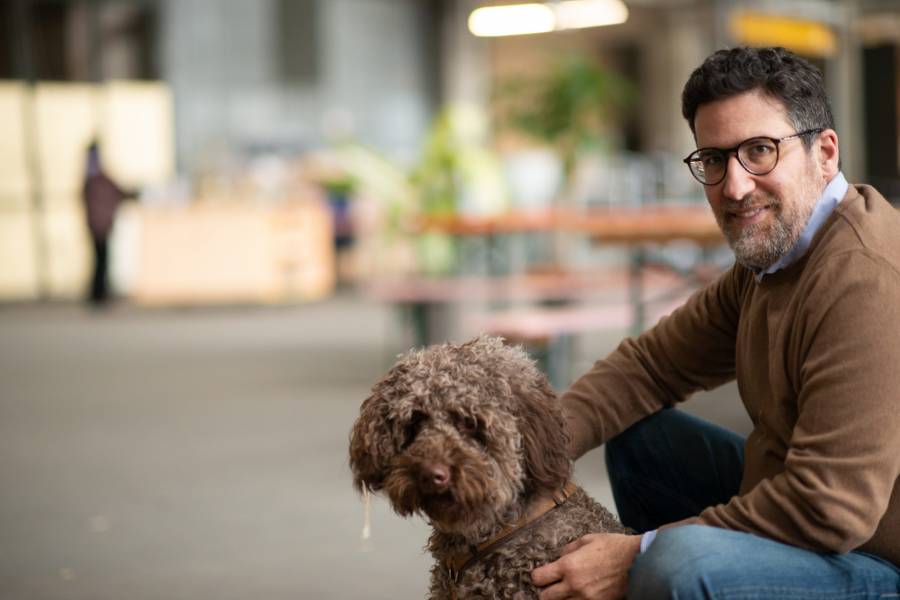
On March 21st we conducted a launch event in our office and workshop in the Urban Tech Republic in Berlin Tegel. Our new electrolyser with integrated storage function met with great interest of a total of 120 experts from all areas of the energy transition: project developers, energy suppliers, electricity and gas network operators, suppliers, and industry associations.
Dr. Severin Fischer, State Secretary in the Senate Department for Economic Affairs, Energy and Enterprises of the State of Berlin, warmly welcomed this diverse group of H2 enthusiasts. He particularly emphasised the need for innovation in the hydrogen sector and the advantages of Berlin as an innovative and high-tech location.
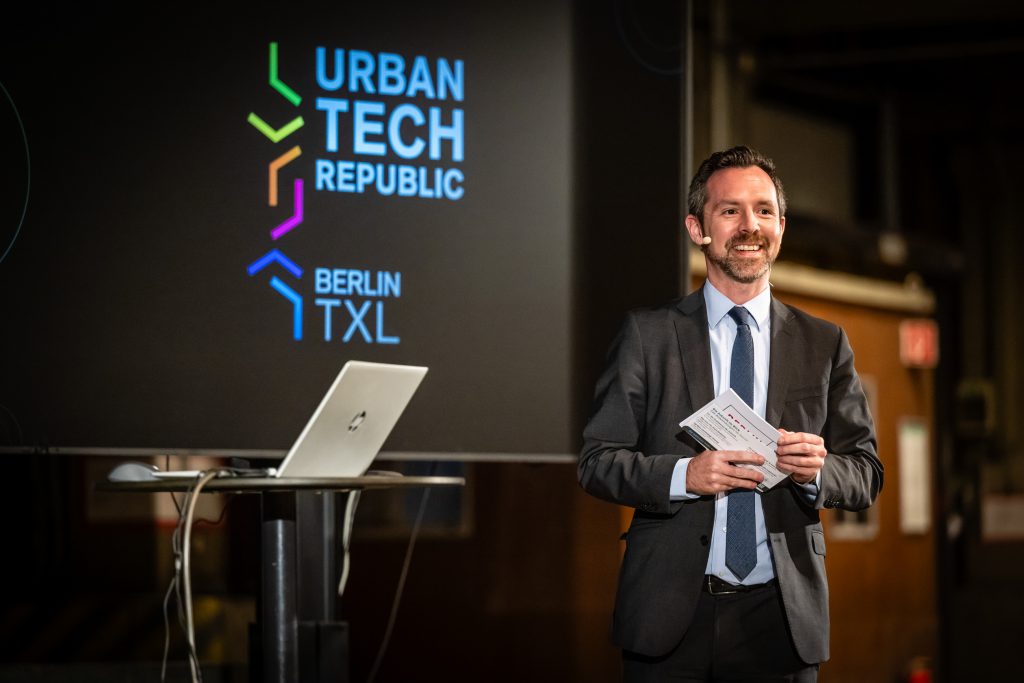
With this overview, Sara Sperling from Tegel Projekt GmbH impressively explained to all participants what a memorable place of transformation they celebrate the launch of our electrolyser. Something new is being built around the former Tegel Airport: a research and industrial park for urban technologies, the new residential area “Schumacher Quartier” and a landscape park.
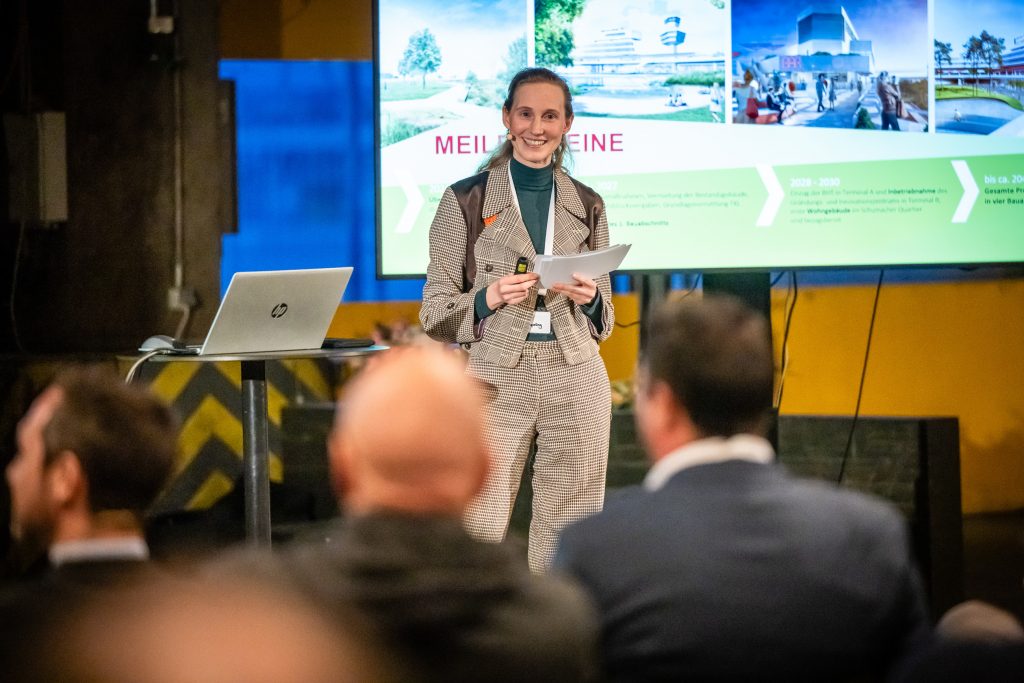
Sebastian Sipp, Managing Director of STOFF2, then explained how our zinc intermediate-step electrolyser works in detail and how we will continue the path to market launch in 2026 with our partners and customers.
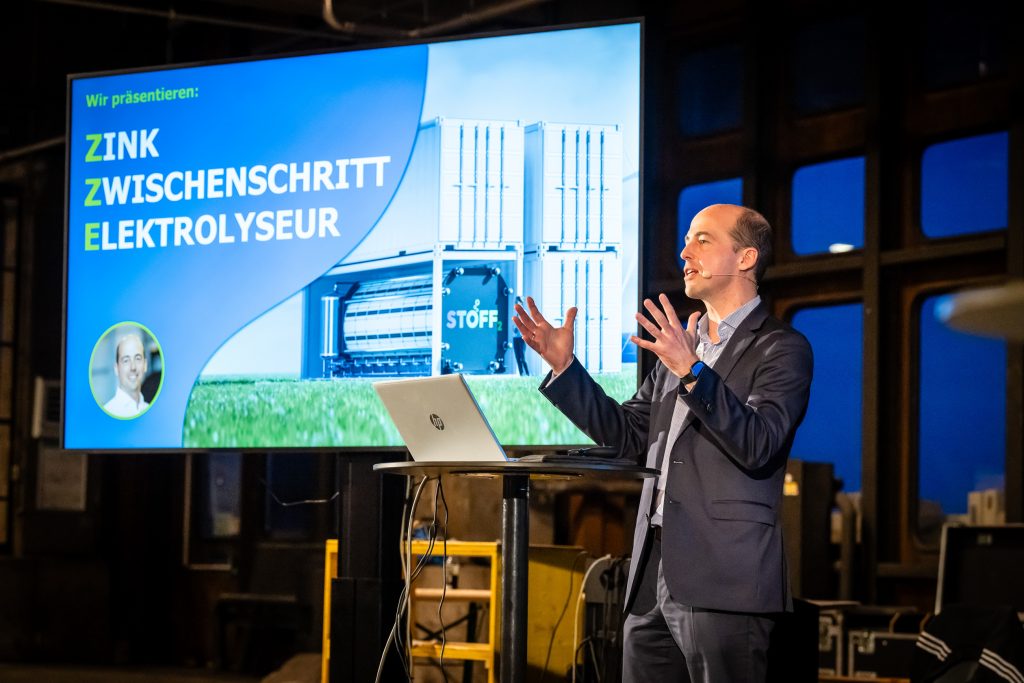
The challenges and opportunities of the energy transition in all sectors were discussed intensively in a panel discussion. Wolfram Axthelm from the German Renewable Energy Association (BEE) highlighted the central role in ramping up renewable energies. Renewable energies are the foundation for all further steps. Werner Diwald from the German Hydrogen Association (DWV) e.V. showed how the H2-projects and the H2-grid infrastructures must be planned and implemented in a coordinated approach. He also spoke about the high value of system-serving electrolysers. From Johannes Daum from the National Organization for Hydrogen and Fuel Cell Technology, NOW, the listeners learned a lot about the current uncertainty in the provision of public funding. This uncertainty can only be avoided if the ramp-up of hydrogen is organised independently of public funding by taxpayers. Quotas, i.e. legal obligations to use hydrogen instead of natural gas, can be an essential building block. According to Peter Müller-Baum, VDMA, stable framework conditions would allow Germany’s industry to create many high-quality, future-proof jobs and facilitate export opportunities.
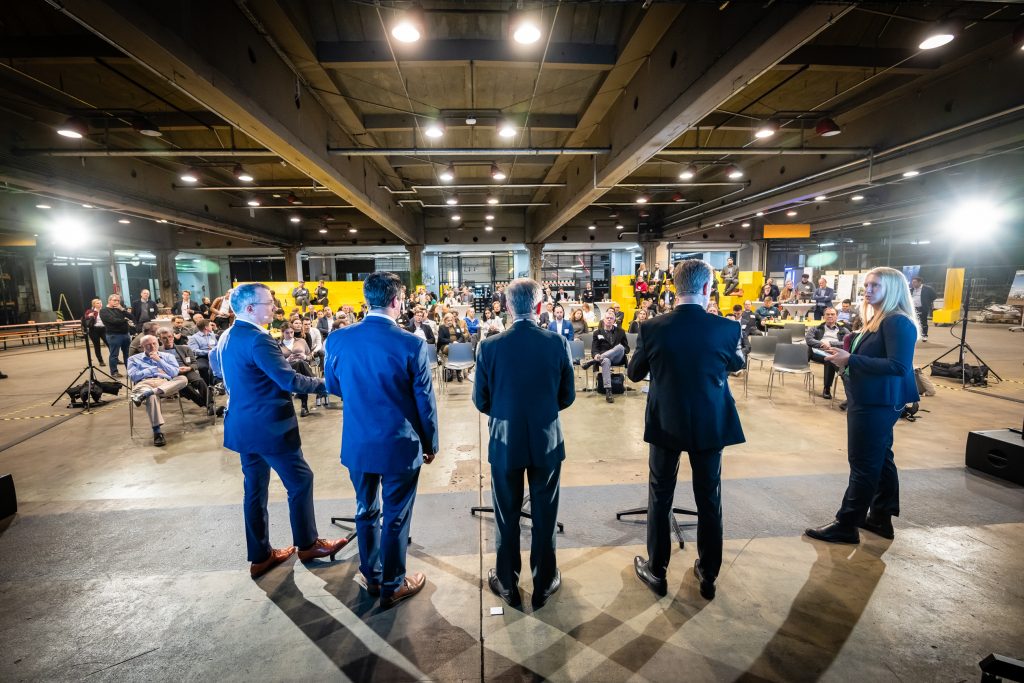
The cozy part of the evening began, discussions continued, and new contacts were made with good food and drinks. At the same time, the participants were able to view our current prototype in small groups and get their own impression of the technology and his enthusiasm for the zinc intermediate electrolyser together with Andrew Zwinkels, founder, and technical director of STOFF2.
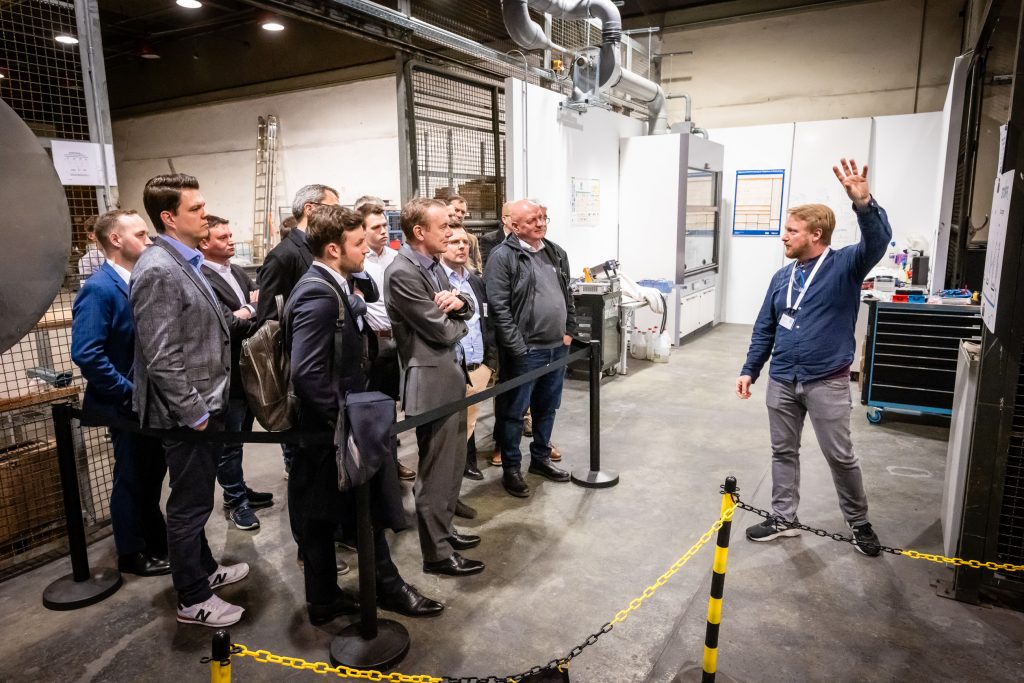
A big thank you to Nora Oberländer, Head of Business Development, for moderating the panel discussion, Katharina Krause for organizing the event, Timo Bovi for moderating and his many activities behind the scenes. It was a wonderful evening together, with lots of new impulses, a good exchange among H2 industry experts, and very tasty food in the Urban Tech Republic!

